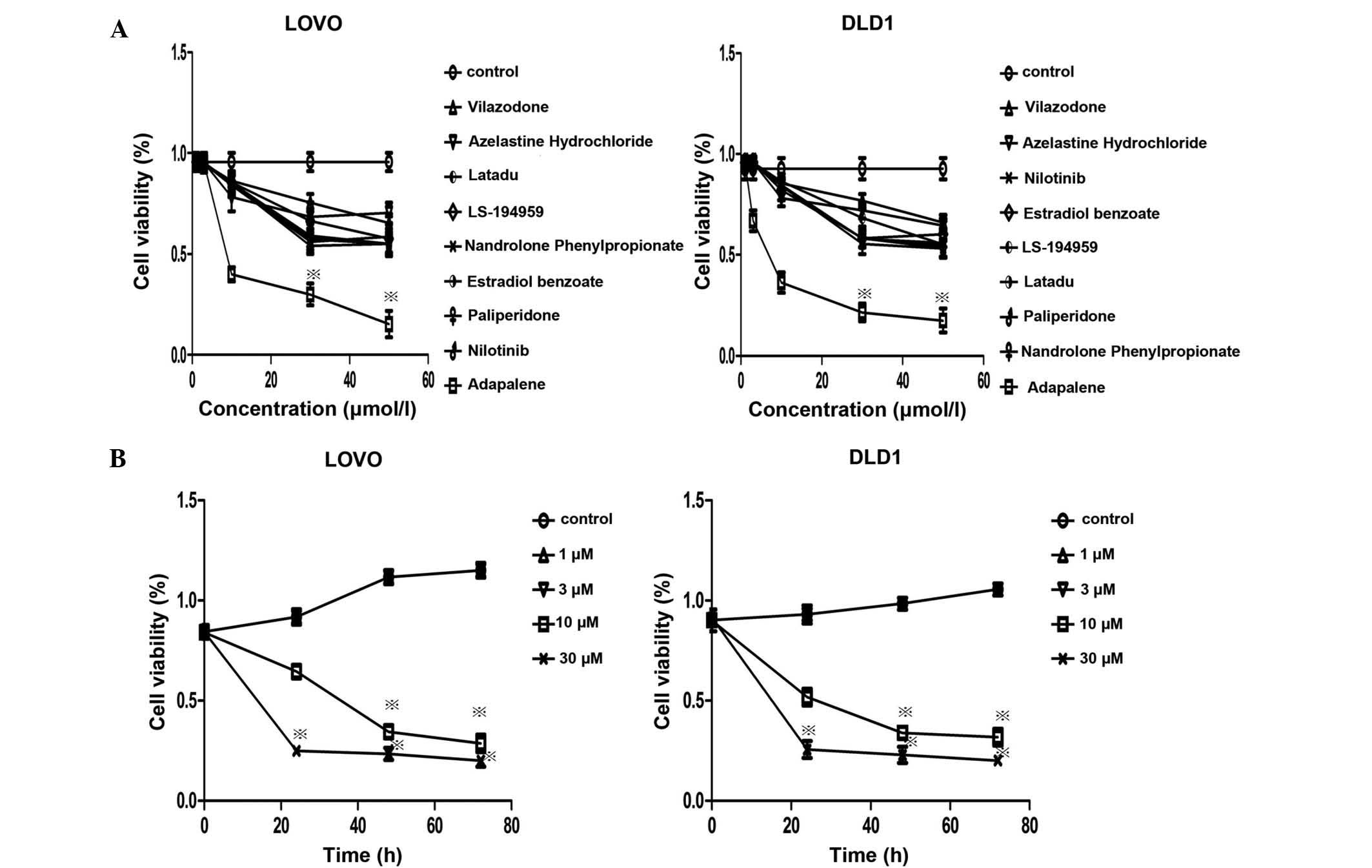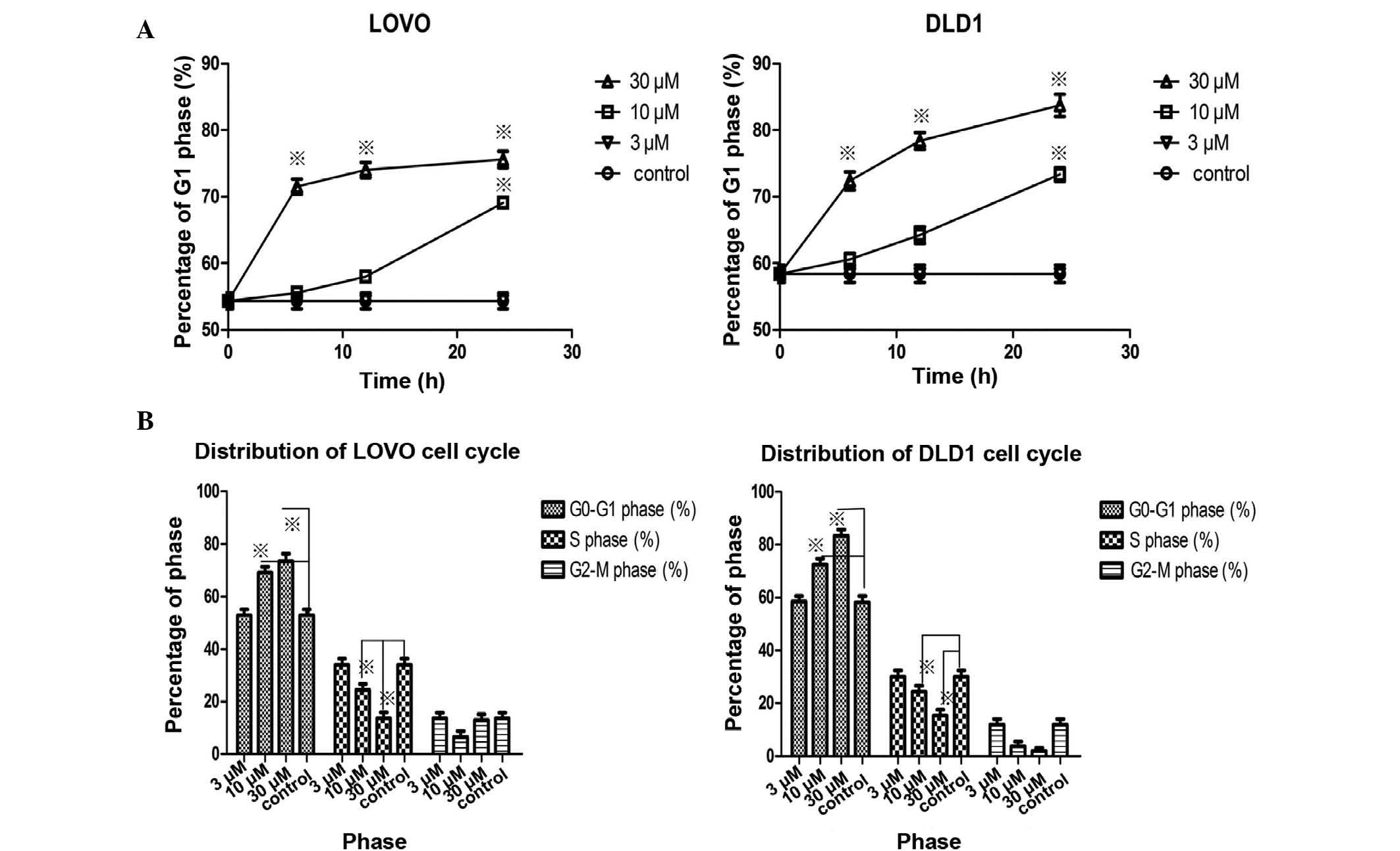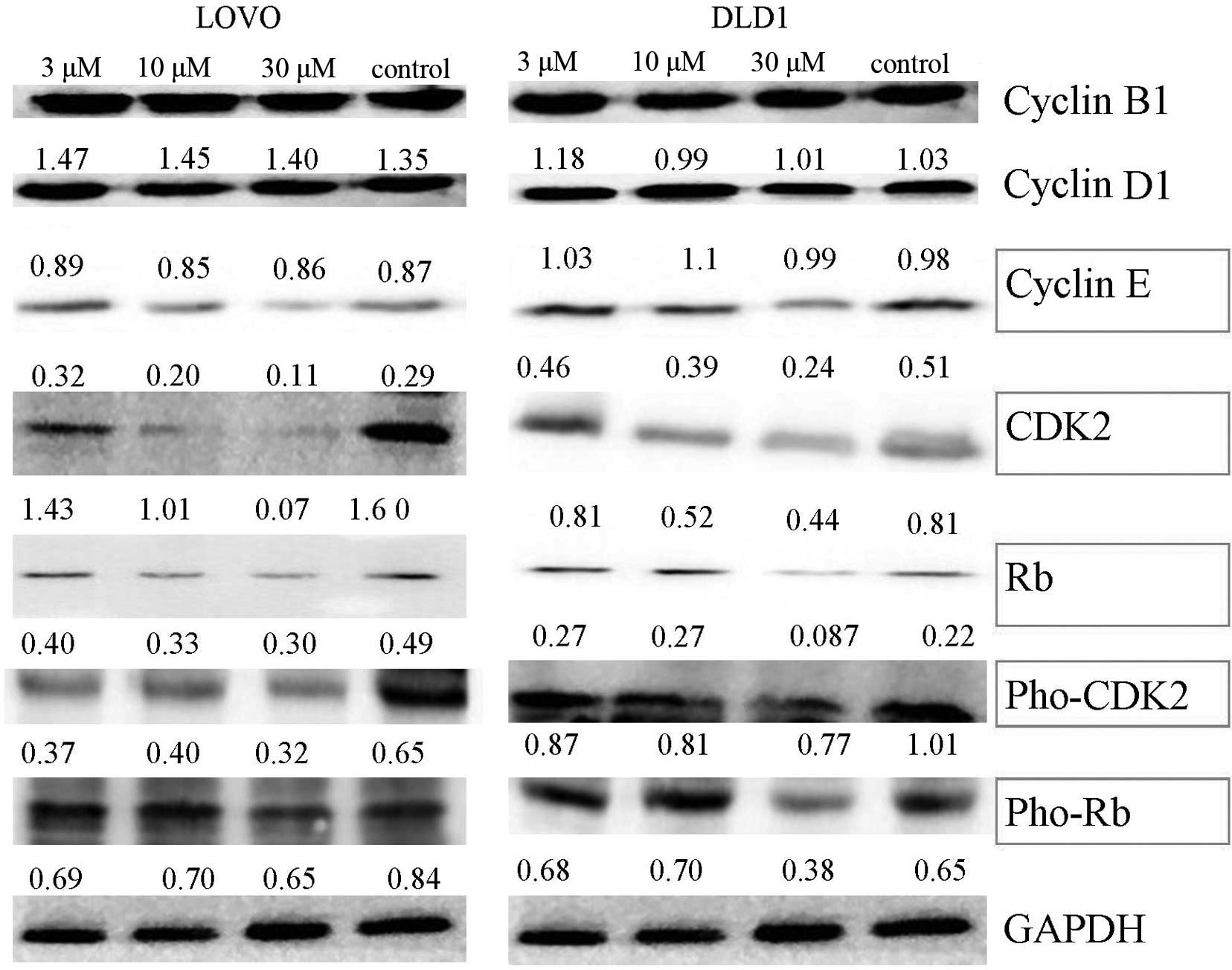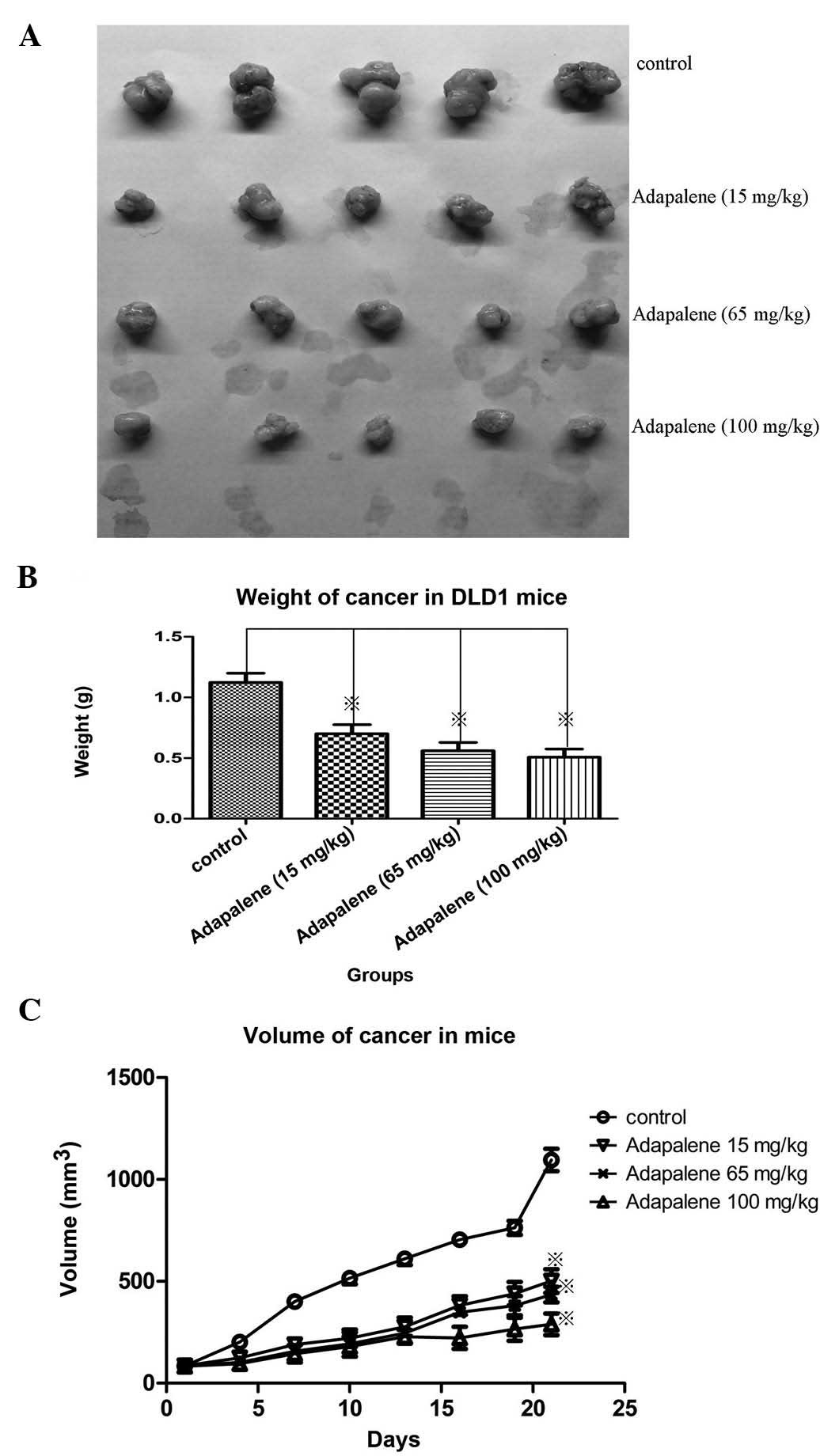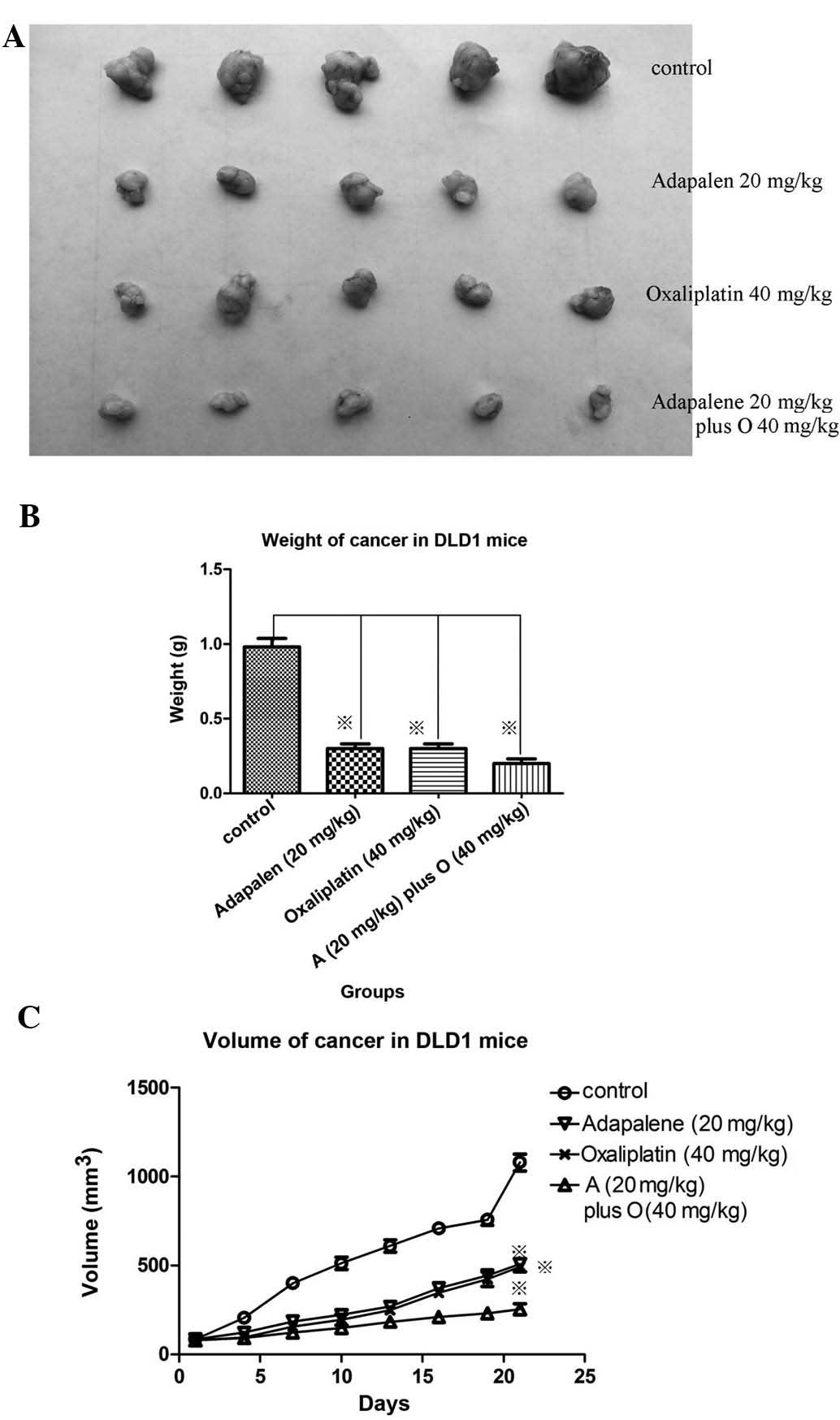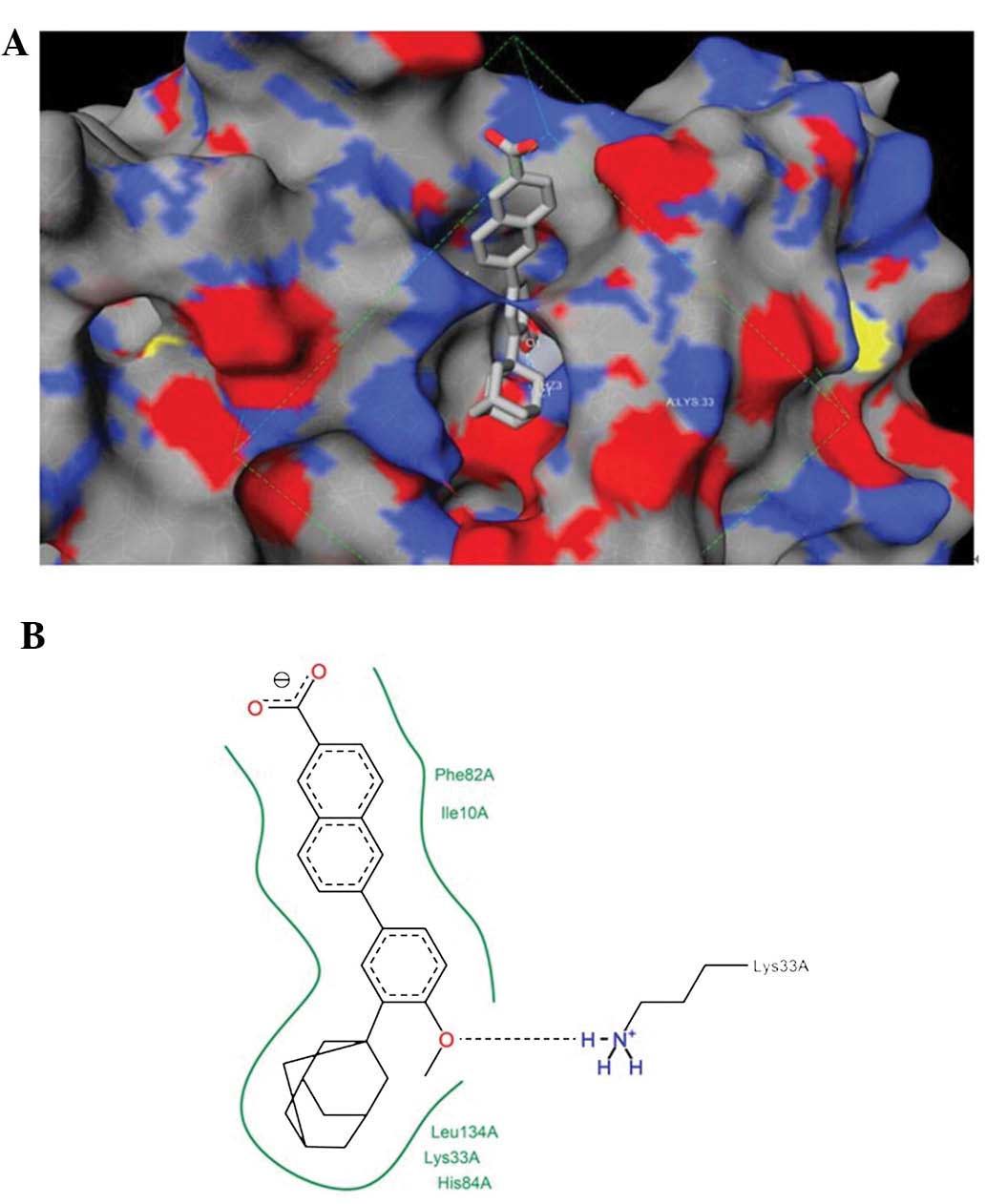|
1
|
Morgan DO: Cyclin-depend kinases: engines,
clocks, and microprocessors. Ann Rev Cell Dev Biol. 13:261–291.
1997. View Article : Google Scholar
|
|
2
|
Sherr CJ and Roberts JM: CDK inhibitor:
Positive and negative regulators of G1-phase progression. Genes
Dev. 13:1501–1512. 1999. View Article : Google Scholar : PubMed/NCBI
|
|
3
|
Murray AW: Recycling the cell cycle:
Cyclins revisited. Cell. 116:221–234. 2004. View Article : Google Scholar : PubMed/NCBI
|
|
4
|
Carnero A: Targeting the cell cycle for
cancer therapy. Br J Cancer. 87:129–133. 2002. View Article : Google Scholar : PubMed/NCBI
|
|
5
|
Webster KR and Kimball D: Novel drugs
targeting the cell cycle. Emerging Drugs. 5:45–59. 2000. View Article : Google Scholar
|
|
6
|
Senderowicz AM: Flavopiridol: The first
cyclin-dependent kinase inhibitor in human clinical trials. Invest
New Drugs. 17:313–320. 1999. View Article : Google Scholar
|
|
7
|
De Azevedo WF, Leclerc S, Meijer L,
Havlicek L, Strnad M and Kim SH: Inhibition of cyclin-dependent
kinases by purine analogues: crystal structure of human cdk2
complexed with roscovitine. Eur J Biochem. 243:518–526. 1997.
View Article : Google Scholar : PubMed/NCBI
|
|
8
|
Glab N, Labidi B, Qin LX, Trehin C,
Bergounioux C and Meijer L: Olomoucine, an inhibitor of the
cdc2/cdk2 kinases activity, blocks plant cells at the G1 to S and
G2 to M cell cycle transitions. FEBS Lett. 353:207–211. 1994.
View Article : Google Scholar : PubMed/NCBI
|
|
9
|
Li H, Leung KS and Wong MH: idock: A
multithreaded virtual screening tool for flexible ligand docking.
Proceedings of the 2012 IEEE Symposium on Computational
Intelligence in Bioinformatics and Computational Biology (CIBCB);
San Diego. pp. 77–84. 2012
|
|
10
|
Li H, Leung KS, Ballester PJ and Wong MH:
Istar: A web platform for large-scale protein-ligand docking. PLoS
One. 9:e856782014. View Article : Google Scholar : PubMed/NCBI
|
|
11
|
Millikan LE: Adapalene: An update on newer
comparative studies between the various retinoids. Int J Dermatol.
39:784–788. 2000. View Article : Google Scholar : PubMed/NCBI
|
|
12
|
Ocker M, Herold C, Ganslmayer M, Hahn EG
and Schuppan D: The synthetic retinoid adapalene inhibites
proliferation and induces apoptosis in colorectal cancer cells in
vitro. Int J Cancer. 107:453–459. 2003. View Article : Google Scholar : PubMed/NCBI
|
|
13
|
Ocker M, Herold C, Ganslmayer M, Zopf S,
Hahn EG and Schuppan D: Potentiated anticancer effects on hepatoma
cells by the retinoid adapalene. Cancer Lett. 208:51–58. 2004.
View Article : Google Scholar : PubMed/NCBI
|
|
14
|
Berman HM, Westbrook J, Feng Z, Gilliland
G, Bhat TN, Weissig H, Shindyalov IN and Bourne PE: The protein
data bank. Nucleic Acids Res. 28:235–242. 2000. View Article : Google Scholar
|
|
15
|
Irwin JJ and Shoichet BK: ZINC-a free
database of commercially available compounds for virtual screening.
J Chem Inf Model. 45:177–182. 2005. View Article : Google Scholar : PubMed/NCBI
|
|
16
|
Irwin JJ, Sterling T, Mysinger MM, Bolstad
ES and Coleman RG: ZINC: A free tool to discover chemistry for
biology. J Chem Inf Model. 52:1757–1768. 2012. View Article : Google Scholar : PubMed/NCBI
|
|
17
|
Morris GM, Huey R, Lindstrom W, Sanner MF,
Belew RK, Goodsell DS and Olson AJ: AutoDock4 and AutoDockTools4:
Automated docking with selective receptor flexibility. J Comput
Chem. 30:2785–2791. 2009. View Article : Google Scholar : PubMed/NCBI
|
|
18
|
Weisberg E, Manley PW, Breitenstein W,
Brüggen J, Cowan-Jacob SW, Ray A, Huntly B, Fabbro D, Fendrich G,
Hall-Meyers E, et al: Characterization of AMN107, a selective
inhibitor of native and mutant Bcr-Abl. Cancer Cell. 7:129–141.
2005. View Article : Google Scholar : PubMed/NCBI
|
|
19
|
Abrahart EN: Dyes and their intermediates.
Pergamon Press; Oxford: 1968
|
|
20
|
Bernard BA: Adapalene, a newchemical
entity with retinoid activity. Skin Pharmacol. 6(Suppl 1): S61–S69.
1993. View Article : Google Scholar
|
|
21
|
Fremont-Smith M, Meigs JV, Graham RM and
Gilbert HH: Cancer of endometrium and prolonged estrogen therapy. J
Am Med Assoc. 131:805–808. 1946. View Article : Google Scholar : PubMed/NCBI
|
|
22
|
Overbeek GA and de Visser: A comparison of
the myotrophic and androgenic activities of the phenylpropionates
and decanoates of testosterone and nandrolone. Acta Endocrinol
(Copenh). 38:285–292. 1961.
|
|
23
|
Bartoszyk GD, Hegenbart R and Ziegler H:
EMD 68843, a serotonin reuptake inhibitor with selective
presynaptic 5-HT1A receptor agonistic properties. Eur J Pharmacol.
322:147–153. 1997. View Article : Google Scholar : PubMed/NCBI
|
|
24
|
Tasaka K and Akagi M: Anti-allergic
properties of a new histamine antagonist,
4-(p-chlorobenzyl)-2-[N-methyl-perhy-droazepinyl-(4)]-1-(2H)-phthalazinone
hydrochloride (azelastine). Arzneimittelforschung. 29:488–493.
1079.
|
|
25
|
Ishiyama T, Tokuda K, Ishibashi T, Ito A,
Toma S and Ohno Y: Lurasidone (SM-13496), a novel atypical
antipsychotic drug, reverses MK-801-induced impairment of learning
and memory in the rat passive-avoidance test. Eur J Pharmacol.
572:160–170. 2007. View Article : Google Scholar : PubMed/NCBI
|
|
26
|
Kramer M, Simpson G, Maciulis V, Kushner
S, Vijapurkar U, Lim P and Eerdekens M: Paliperidone
extended-release tablets for prevention of symptom recurrence in
patients with schizophrenia: a randomized, double-blind,
placebo-controlled study. J Clin Psychopharmacol. 27:6–14. 2007.
View Article : Google Scholar : PubMed/NCBI
|
|
27
|
Dolman ME, Poon E, Ebus ME, den Hartog IJ,
van Noesel CJ, Jamin Y, Mr Hallsworth A , Robinson SP, Petrie K,
Sparidans RW, et al: Cyclin-dependent kinase inhibitor AT7519 as a
potential drug for MYCN-dependent neuroblastoma. Clin Cancer Res.
pii: clincanres.0313.2015 [Epub ahead of print]. 2015. View Article : Google Scholar : PubMed/NCBI
|
|
28
|
Li H, Leung KS, Nakane T and Wong MH:
iview: An interactive WebGL visualizer for protein-ligand complex.
BMC Bioinformatics. 15:562014. View Article : Google Scholar : PubMed/NCBI
|
|
29
|
Stierand K and Rarey M: PoseView-molecular
interaction patterns at a glance. J Cheminform. 2(Suppl 1):
P502010. View Article : Google Scholar
|
|
30
|
Pines J: Four-dimensional control of the
cell cycle. Nat Cell Biol. 1:E73–E79. 1999. View Article : Google Scholar : PubMed/NCBI
|
|
31
|
Furuno N, den Elzen N and Pines J: Human
cyclin A is required for mitosis until mid prophase. J Cell Biol.
147:295–306. 1999. View Article : Google Scholar : PubMed/NCBI
|
|
32
|
Juan G and Cordon-Cardo C: Intranuclear
compartmentalization of cyclin E during the cell cycle: Disruption
of the nucleoplasm-nucleolar shuttling of cyclin E in bladder
cancer. Cancer Res. 61:1220–1226. 2001.PubMed/NCBI
|
|
33
|
Ohi R and Gould KL: Regulating the onset
of mitosis. Curr Opin Cell Biol. 11:267–273. 1999. View Article : Google Scholar : PubMed/NCBI
|
|
34
|
Reed SI: Control of the G1/S transition.
Cancer Surv. 29:7–23. 1997.PubMed/NCBI
|
|
35
|
Cobrinik D: Pocket proteins and cell cycle
control. Oncogene. 24:2796–2809. 2005. View Article : Google Scholar : PubMed/NCBI
|
|
36
|
Meraldi P, Lukas J, Fry AM, Bartek J and
Nigg EA: Centrosome duplication in mammalian somatic cells requires
E2F and Cdk2-cyclin A. Nat Cell Biol. 1:88–93. 1999. View Article : Google Scholar : PubMed/NCBI
|
|
37
|
Agouron: 3,5-Disubstituted indazole
compounds. Pharmaceutical compositions, or method for mediating or
inhibiting cell proliferation. US 0142345. 2006
|
|
38
|
Astex: Preparation of 3,4-disubstituted 1
h-pyrazole compounds and their use as cyclin dependent kinases
(cdk) and glycogen synthase kinase-3 (gsk-3) modulators. WO 012256.
2005
|
|
39
|
Astex: Preparation of 3,4-disubstituted
pyrazoles as inhibitors of cyclin dependent kinases (CDK), Aurora A
kinase or glycogen synthase kinase 3 (GSK3). WO 003440. 2006
|
|
40
|
Boss DS, Schwartz GK, Middleton MR, Amakye
DD, Swaisland H, Midgley RS, Ranson M, Danson S, Calvert H, Plummer
R, et al: Safety, tolerability, pharmacokinetics and
pharmacodynamics of the oral cyclin-dependent kinase inhibitor
AZD5438 when administered at intermittent and continuous dosing
schedules in patients with advanced solid tumours. Ann Oncol.
21:884–894. 2010. View Article : Google Scholar :
|
|
41
|
Jones CD, Andrews DM, Barker AJ, Blades K,
Byth KF, Finlay MR, Geh C, Green CP, Johannsen M, Walker M and Weir
HM: Imidazole pyrimidine amides as potent, orally bioavailable
cyclin-dependent kinase inhibitors. Bioorg Med Chem Lett.
18:6486–6489. 2008. View Article : Google Scholar : PubMed/NCBI
|
|
42
|
Jones CD, Andrews DM, Barker AJ, Blades K,
Daunt P, East S, Geh C, Graham MA, Johnson KM, Loddick SA, et al:
The discovery of AZD5597, a potent imidazole pyrimidine amide CDK
inhibitor suitable for intravenous dosing. Bioorg Med Chem Lett.
18:6369–6373. 2008. View Article : Google Scholar : PubMed/NCBI
|
|
43
|
Gucký T, Jorda R, Zatloukal M, Bazgier V,
Berka K, Řezníčková E, Béres T, Strnad M and Kryštof V: A novel
series of highly potent 2,6,9-trisubstituted purine
cyclin-dependent kinase inhibitors. J Med Chem. 56:6234–6247. 2013.
View Article : Google Scholar : PubMed/NCBI
|
|
44
|
Shapiro GI, Bannerji R, Small K, et al: A
phase I dose-escalation study of the safety, pharmacokinetics (PK)
and pharmacodynamics (PD) of the novel cyclin-dependent kinase
inhibitor SCH 727965 administered every 3 weeks in subjects with
advanced malignancies. J Clin Oncol (Meeting Abstracts).
26:35322008.
|
|
45
|
Nemunaitis J, Saltzman M, Rosenberg MA, et
al: A phase I dose-escalation study of the safety, pharmacokinetics
(PK) and pharmacodynamics (PD) of SCH 727965, a novel
cyclin-dependent kinase inhibitor, administered weekly in subjects
with advanced malignancies. J Clin Oncol (Meeting Abstracts).
27:35352009.
|
|
46
|
Trott O and Olson AJ: AutoDock Vina:
Improving the speed and accuracy of docking with a new scoring
function, efficient optimization and multithreading. J Comput Chem.
31:455–461. 2010.
|
|
47
|
Hensby C, Cavey D, Bouclier M, Chatelus A,
Algate D, Eustache J and Shroot B: The in vivo and in vitro
anti-inflammatory activity of CD271: A new retinoid-like modulator
of cell differentiation. Agents Actions. 29:56–58. 1990. View Article : Google Scholar : PubMed/NCBI
|
|
48
|
Tashiro T, Kawada Y, Samurai Y and Kidan
Y: Antitumor activity of a new platinum complex,
Oxalato(trans-l-1,2-diaminocyclohexane) platinum(II): New
experimental data. Bioed Pharmacother. 43:251–260. 1989. View Article : Google Scholar
|















